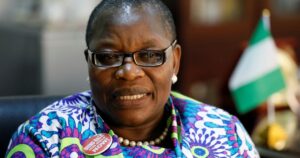There were sufficient notices that a protest or even riot of hungry people would someday explode in Nigeria.
Nigeria has been the headquarters of the poorest humans in the world since the days of ex-President Muhammadu Buhari.
When President Bola Tinubu took over from his fellow APC party man Buhari, he pushed poor folks further into economic uncertainties with the removal of subsidies on fuel and the exchange rate.
As prices escalated, especially those of essential food items, community looting of food warehouses and trucks became the order of the day.
Also, every time the government or individuals share food items with poor folks, a stampede always results among those queuing for the food. Instances of these stampedes include at the Customs base in Lagos, the Nasarawa State University, and the home of a Sokoto State politician. In all of these cases, the number of dead people was more than a dozen.
So, a nationwide hunger protest was someday going to happen. On X, netizens gave it the name #EndBadGovernance protest. August 1, 2024, became the consensus date.
But hunger protesters will hardly be orderly anywhere in the world. As the saying goes, a hungry man is an angry man. However, the Nigerian government created these huge numbers of hungry people through consistent failures and extravagant lifestyles of officials. One of the officials, Senate President Godswill Akpabio said ‘Let them protest. We will be here eating.’
Knowing the danger of allowing hungry people to march on the streets, the government tried to prevent it more through propaganda than economic policies. They invited traditional rulers, religious leaders, political actors, student groups, emergency activists and anyone who had a voice to lend against this upcoming protest. The news was dominated by these voices warning against the protest, withdrawing from the protest or threatening the would-be protesters.
On the eve of the protest, the government suddenly realised that all its best efforts against the protest weren’t working. The protesters would march on the streets in their numbers. This would be very embarrassing to Tinubu who styles himself as the ‘best political strategist ever to come out of Nigeria’ and the man who ‘built Lagos.’
The government shopped for court orders and got injunctions in Lagos and Abuja restricting protesters to defined locations. They also made massive security deployments to these two cities largely because the media are more active there, and media coverage of the protest, especially when it turns out to be huge stir other parts of the country to come out.
On D-Day, the protest was held in most regions, except the South East where the slogan ‘e no concern us’ appears to be the mood in reaction to Peter Obi’s loss in the 2023 presidential election.
In Abuja, security forces clamped protesters with teargas and in some cases, live bullets.
In Lagos, the protesters were confined to Ojota. This reduced the number of protesters because those whose homes were far from the protest venue stayed away.
In the North, the protest turned into vandalism of government assets, looting, the waving of the Russian Flag and chanting for a military takeover.
But in all, the protest has sent a message to the government that Nigerians are not docile. They would roar if pushed to the wall.










More Stories
Why Burkina Faso’s Ibrahim Traore has captured hearts and minds around the world
Oby Ezekwesili: The fighter for social justice, women rights
Onakoya: From Lagos Ghetto to New York Times Square where he broke the Guinness World Record in Chess